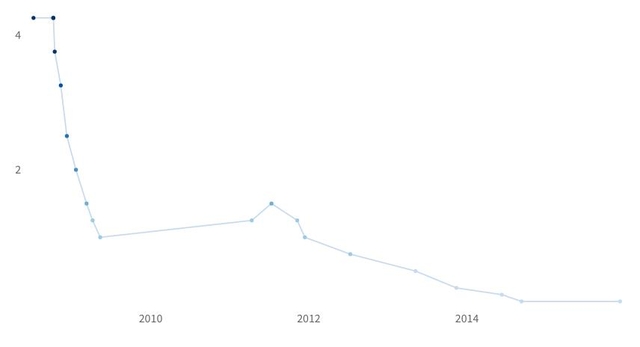Economic Growth
Much of the election debate is focusing on the space for tax cuts, increasing spending or even paying off some of the national debt. So what is really happening economically? One key indicator Gross Domestic Product, a measure of national income which includes a contribution from multinationals, is showing a remarkable recovery. This graph tells the story. While we don't yet have final figures for 2015, the Central Bank expects GDP to grow by 6.6%. The good news is that the strong performance is expected to continue. The Central Bank expects GDP will grow by 4.8% in 2016 and 4.4% next year.
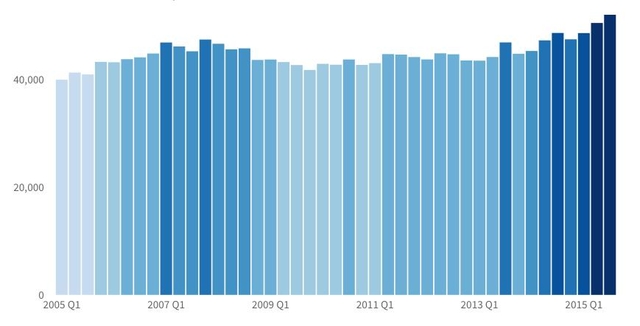
The Outlook
So what is the forecast for the economy and which figures will the economists be examining? Gross National Product, which measures national income but excludes the contribution from multinationals, is frequently seen as a more accurate measure of activity in Ireland. We don't yet have final figures for 2015 but economists at the Central Bank expect the economy will have grown by 4.9% last year. They also forecast robust expansion this year and in 2017. However, forecasting what will happen next in the Irish economy is notoriously difficult. So far 2016 has been characterised by a lot of turbulence in the stock markets internationally. This is largely being driven by growth in China being a lot less than expected. That has spilled over into the commodities with the price of oil dropping below $30 before rallying modestly. There have also been significant fluctuations in the foreign currency markets, which may make Irish exports more expensive. These are all big factors which would have significant negative effects on the Irish economy. So politicians should not rely on the forecasts which say everything will be fine. There is no guarantee of that.
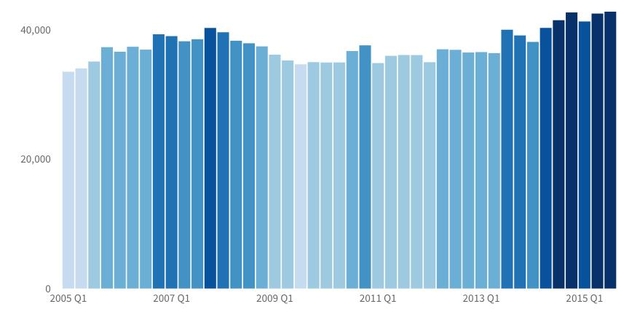
Property Market
Despite the recovery in the residential market, the cost of buying a home is 33% lower than its 2007 peak. Initially the recovery was characterised by a surge in Dublin prices while growth in prices outside the capital lagged behind. However since the introduction of new mortgage rules by the Central Bank, house price inflation in the capital has moderated. In the year to December 2015 residential property prices increased by 6.6% compared to an increase of 16.3% in the 12-month period to December 2014. Aside from property prices the most important issue left from the crash are mortgage arrears. There are still 92,291 mortgage accounts behind on repayments despite the economic recovery. This will be an enormous issue for the next government.
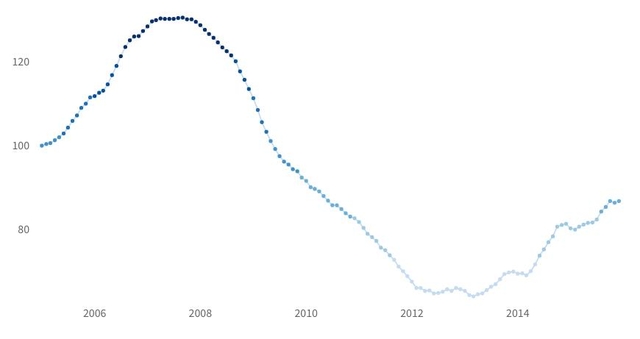
Unemployment
Unemployment has been steadily falling since its peak of 15% in 2011. The latest data from the Central Statistics Office show joblessness is running at 8.8%. While there has been a huge recovery it is worth bearing in mind that unemployment was just over 4% when the economy was booming between 2005 and 2007. So there is still some distance to go before Ireland reaches full employment.
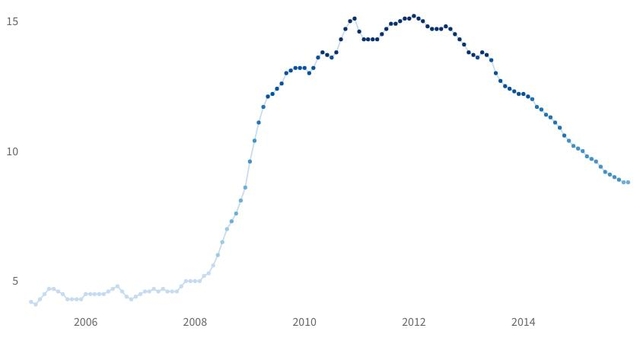
Consumer Prices
Ireland, like other eurozone countries, has seen little or no inflation over recent years. Many Irish people who are still struggling with higher taxes might be happy with those circumstances. But in Frankfurt the European Central Bank is unhappy with inflation running at low levels across the eurozone. It has set a target for inflation of below or close to 2%. However, inflation is running at 0.2% across the eurozone. That is far below its target. As a result the ECB has reduced interest rates to 0.05%.
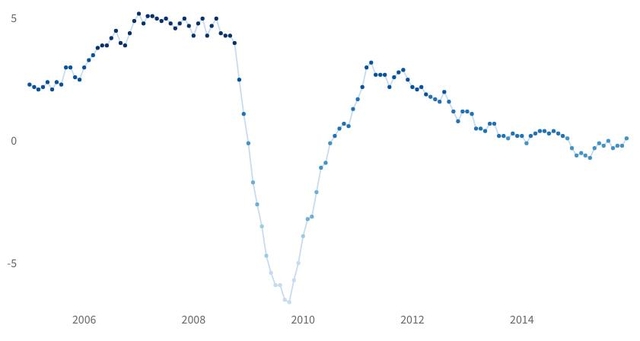
Interest Rates
For Irish households who still have high levels of debt, lower interest rates are good news (particularly for those lucky enough to have tracker mortgages). The flip side is that households currently benefiting from low interest rates need to bear in mind that as soon as eurozone inflation recovers, interest rates are likely to increase too. Before the economic crash they were running at 4.25%.
